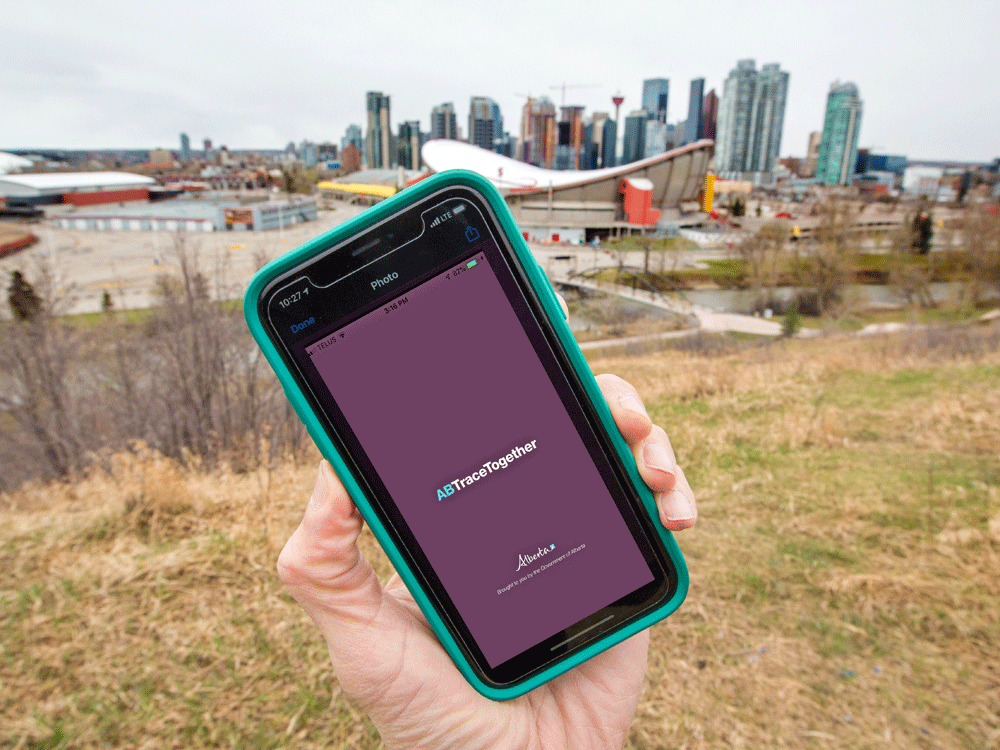in pandemics past, public health officials have utilized contact tracing in order to track the spread of the virus. typically, this involves identifying an infected individual, figuring out who they have been in contact with, and urging those who have been to isolate, quarantine or get tested.in 2020, we have apps for that.the
canadian medical association journal (cmaj) released a paper on monday by robert kleinman and colin merkel detailing how such apps can address traditional contact tracing’s flaws, among them “scalability, notification delays, recall errors and contact identification in public spaces.”some countries like china and south korea have employed involuntary digital contact tracing through the use of financial transactions and cell phone location data. the voluntary apps, like alberta’s
abtracetogether, use bluetooth signals to infer the distance between smartphones. this is only for phones within two metres for more than 15 minutes. the encrypted information is held on the phone for 21 days.
basically, users download the app, enable bluetooth from their smartphones and the app sends out an anonymous beacon to other nearby phones using the same app. each phone records the beacons it comes into contact with and the app downloads the beacons of people who have registered as positive for the virus. then, the app checks the beacons it came into contact with and if there is a positive result on the list, users receive a notification.according to
global news, “if a user tests positive, they can consent to uploading that record to alberta health services for human contact tracers to reach out to other users with phone numbers the users registered the app with.”on ios phones, the app only works when the screen is unlocked and the app is on in the foreground. on android phones, the app can be on in the background.another strategy suggested in the cmaj paper is to use wifi fingerprinting, where the received signal from each network creates a “fingerprint” of the location.contact tracing apps come with flaws however. the largest of which is simply that the effectiveness is dependent on the level of adoption. the less people using it, the less cases will be identified. for reference, alberta’s app was downloaded by 100,000 people within a week of release.“bluetooth signal strength is hardware dependent, exhibits substantial fluctuations and is attenuated when people are between the transmitting and receiving devices,” the study reads.bluetooth-enabled apps can only scan for other similarly enabled devices when the app is in the foreground,as a result of these errors, contact tracing apps may have less than perfect accuracy in determining infected cases, which can lead to false positives or some cases being left unnoticed. given that target devices are generally unknown prior to pairing, this makes it difficult for devices to “find” one another. think of if you have ever paired your phone to a bluetooth speaker to play music. the first time you do it, your phone is unknown to the speaker.the current recommendation for the alberta app is to leave it on in the foreground, which in turn drains battery quicker.today, the federal government announced a bluetooth-based contact tracing app to be rolled out for testing next month in ontario. called covid alert, it was developed using open source code from the ontario digital service in partnership with a team from shopify.according to the
cbc, the app “uses randomly generated, anonymous codes and bluetooth signals between phones that also have the app downloaded to keep track of the proximity and duration of a certain contact.”the aim is to get the app out by july 2nd for ios and android. the intellectual property is owned by the federal government.aside from the expected privacy issues, the authors also express concern that these apps could result in less adherence to other preventative measures, which would in turn make them less effective.“although modelling studies have suggested that contact-tracing apps could reduce transmission, there have not been any published studies on the effectiveness of such apps,” it reads.going forward, the authors recommend an integration of traditional and digital contact tracing. this includes an emphasis on the privacy rights of users, including the option to delete data at any time even though that may effect results. as well, they recommend the apps be field tested prior to release, that governments should promote adoption of the apps and an increase in diagnostic testing for those individuals exposed by the app.
nsokic@postmedia.com |
@sokic_don’t miss the latest on covid-19, reopening and life. subscribe to healthing’s daily newsletter coming out of covid.
 3 minute read
3 minute read









